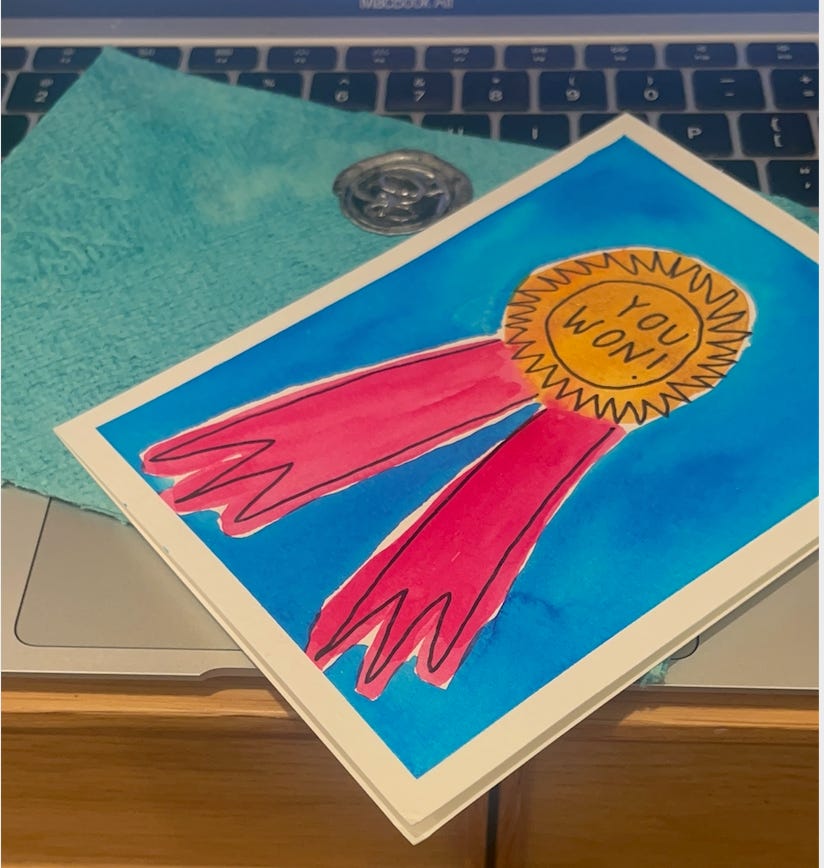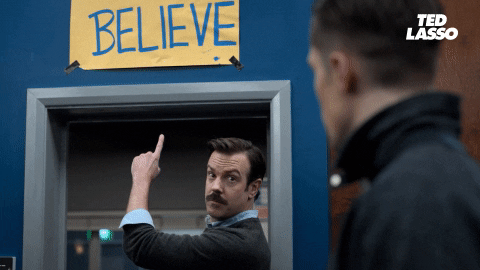#9 - Epistolary
Sharing a short letter exchange that weaves together work, art, illness and healing.
The craftwork of Erin Riegler - she hand makes cards, envelopes and yes wax seals.
Every Riven Thing
God goes, belonging to every riven thing he’s made sing his being simply by being the thing it is: stone and tree and sky, man who sees and sings and wonders why God goes. Belonging, to every riven thing he’s made, means a storm of peace. Think of the atoms inside the stone. Think of the man who sits alone trying to will himself into a stillness where God goes belonging. To every riven thing he’s made there is given one shade shaped exactly to the thing itself: under the tree a darker tree; under the man the only man to see God goes belonging to every riven thing. He’s made the things that bring him near, made the mind that makes him go. A part of what man knows, apart from what man knows, God goes belonging to every riven thing he’s made.
- Christian Wiman
I run an epistolary experiment with my friend Charlotte. Sometimes we trade texts, but we try to write them as if they were letters. Yes, languorous, longform letters instead of truculent texts and emetic emails. I long for the days when our communications were considered and sculpted, full of inquiry, wonder and meaning making. It was necessary when it took days, weeks for correspondences to arrive.
I am yet to become a strong writer, more so in my youth. I was nudged by CP to take a creative writing class, winter quarter of sophomore year. My choice was English 92 - Reading and Writing Poetry, with Christian Wiman. Christian is distinguished as, I kid you not, a Christian writer and uses his deep and complex relationship with God to probe faith through poetry. He is “most moved by apophatic, or negative, theology, which seeks to understand God through all the things we cannot say about God.” He is also a father, a professor at Yale Divinity School, a Waldstrom’s macroglobulinemia cancer patient at 39 and a CAR-T recipient.
In English 92, he was young, a Stegner Fellow and I did not know that I caught him during a faithless phase in his life. I didn’t do well in the class, maybe I got a C or so. I recall writing a modern American sonnet in iambic heptameter that tried to comment on American ennui with the image of a La-z-boy chair molded with indentations of a butt (I think I use the term “ass crack”). But importantly he consecrated in me a deep and voluminous love of poetry that came through the act of memorizing and writing poetry. I had done plenty of analysis and criticism; deep dives into the sonnets of Petrarch or blank verse of Milton in Humanities CIV and a Poetry and Poetics class with the inimitable Diane Middlebrook, who would dramatically clutch her chest as she metamorphosed and dissolved into the polysemy of Ovid.
I encountered Christian’s work throughout the ensuing decades and would remember aspects of the class. I felt honored to have spent time with this rising poet. But in reading a recent New Yorker article which amalgamated his poetry, spirituality, disease and CAR-T. I could not resist reaching out to him, in finding synchronicity and congruence in his life, verse, reversed in our shared universe. Below was the brief, epistolary exchange:
From Ben
Dear Christian,
I was delighted to discover the New Yorker article describing your life, since I last crossed paths with you. I took your Poetry Writing class (English 92), winter of 1995/96 at Stanford. While I was a mediocre student and poet, at best, your class left an indelible imprint upon me; poetry has continued to play an important role in my life, despite a career largely devoted to the sciences. From my memories of the class, I recall distinctly working through Prufrock and having to memorize the Idea of Order at Key West, two poems that I still delight in reciting today ("the sky acutest at its vanishing"). Robert Hass visited, when Sun Under Wood was published, and we attended his recitation on campus. I sheepishly remember, as a 19 year old, replying to Hass' question "what did you like about this poem?" that I didn't have any reason for liking it other than being drawn to the beauty of the assembled words. I was embarrassed because I remembered how you had counseled us, "that you must always have a reason for why you like, detest, fidget with, or are cracked open by a poem." I failed!
But your impact has remained - I've subsequently named one of my daughters Rilka (of course, after the poet). And I've followed your career, pausing to read one of your poems if it showed up in the New Yorker or somewhere else, and noting your work at Poetry. This morning I traded some of Milosz's poems with a friend because that is how a day might start upon a more sublime foot.
I was surprised and saddened to hear of your health and that you had received CAR-T. I hope this email finds you in good health and that your family feels safe and secure. I had lost my wife to cancer almost ten years ago. Poetry was a salve for my grief then and continues to be today. I've also subsequently devoted the last nine years towards developing new cancer therapies, centered around CAR-T. I truly believe that these treatment approaches, which harness the power of our own immunity, maybe our own spirit, can restore humanity to patients facing a difficult diagnosis and challenging treatments. If there is anything I can do for you on your treatment journey, please let me know, though I am certain you are in good hands over at Yale.
I wanted to write and thank you for the gift of poetry that has lasted almost three decades since taking your class. And I'm wishing the best for you and your family and am looking forward to your continued work.
Fondly,
Ben Wang
From Christian
Ben,
What a nice note. Thank you so much for taking the time to write, and for catching me up on your life since Stanford. I actually think your answer to Hass’s question is fine—he probably did too. And I’m delighted to hear that you are connected to CAR-T, which completely saved my life this past spring. I was truly on my way out. It’s such important work you are doing.
Thanks again for your kind message.
Christian
Believe
I felt lightened, perhaps more sublime reconnecting with him. Incidentally no one should ever hesitate to reach out to someone from their past. You would be surprised by how much your presence in their lives meant to them.
I can’t help but think that our world has odd and mysterious ways of braiding us together. Separated by decades, unknown to him, his influence, sticky to my inward being, may have quietly guided me to exactly where I am now; CAR-T and poetry. Others may call this fate, destiny, God’s will; I remain a scientist and in Spinoza’s camp. But I do believe that this universe is a relentless march towards greater joy and possibility, and it exists in the interstitia obscura, the unshadowed connective fascia that bridges our collective human condition. Connection is something to believe in.
(apologies to Foley who probably hears this mechanical dulcimer playing and is just shaking his head. apologies to the rest of you, who has to listen to some pitchy cello)





